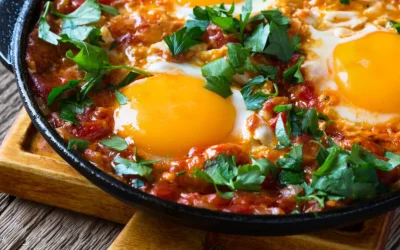What Happens if I Eat 500 Calories a Day?
The 500-calorie diet is an extremely low-calorie diet (VLCD) aimed at rapid weight loss, usually prescribed for short periods of time and often under medical supervision. It involves limiting caloric intake to around 500 calories per day, which is significantly below the recommended daily intake for adults.
What is the 500 Calorie Diet?
The 500-calorie diet severely restricts food consumption, focusing on nutrient-dense, low-calorie options like lean proteins, non-starchy vegetables, and minimal carbohydrates. It’s commonly part of medical procedures to manage severe obesity or prepare for surgeries, such as bariatric procedures. While the diet can lead to quick results, it is not sustainable for long-term use due to its lack of essential nutrients.

Advantages of a 500-Calorie Diet
1. Rapid Weight Loss:
The most immediate benefit is rapid weight loss, which can be helpful in certain medical programs or to meet short-term goals. The extreme caloric deficit forces the body to use stored fat for energy.
2. Appetite Control:
Some people report that eating fewer calories can reduce hunger levels due to physiological changes, although this effect can vary from person to person.
Disadvantages of a 500-Calorie Diet
1. Nutritional Deficiencies:
A daily intake of only 500 calories makes it almost impossible to meet the required amounts of essential nutrients like vitamins, minerals, and electrolytes.
2. Muscle Loss and Metabolic Slowdown:
The body often breaks down muscle tissue for energy, leading to muscle loss. This can slow down your metabolism, making it harder to manage weight in the long term.
3. Psychological Effects:
Following such an extreme diet can lead to obsessive thinking about food, irritability, and constant hunger, which may increase the risk of developing unhealthy eating habits or eating disorders.
4. Hormonal and Health Risks:
For women, severe calorie restriction can cause hormonal imbalances, irregular menstrual cycles, and fertility issues. Prolonged use can also increase the risk of heart problems, gallstones, and other health complications.
Tips for Following the 500-Calorie Diet Safely (When Prescribed)
1. Medical Supervision:
Always follow this diet under the supervision of a healthcare professional to monitor potential risks and ensure it aligns with your health needs.
2. Choose Nutrient-Dense Foods:
Focus on foods that are high in essential nutrients, such as lean proteins (chicken, fish) and vegetables, to maximize your nutrient intake within the 500-calorie limit.
3. Stay Hydrated:
Drink plenty of water throughout the day to prevent dehydration, which is especially important when following a very low-calorie diet.

4. Limit the Duration:
This diet is not intended for long-term use. Gradually transition to a sustainable eating pattern once the short-term goal is achieved.
5. Monitor Your Body’s Response:
Keep an eye out for extreme fatigue, dizziness, or other side effects, and adjust your diet accordingly.
Conclusion
While the 500-calorie diet may provide short-term weight loss, it carries significant risks. In most cases, safer and more sustainable weight loss methods are recommended for the long term. If you’re considering this type of diet, always consult a healthcare professional to minimize potential health risks.
Also Read: Top 10 Healthy Snacks



